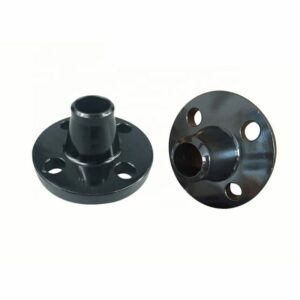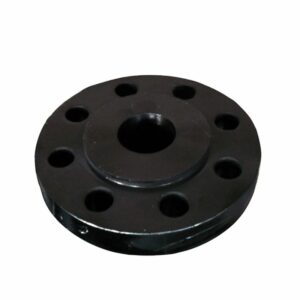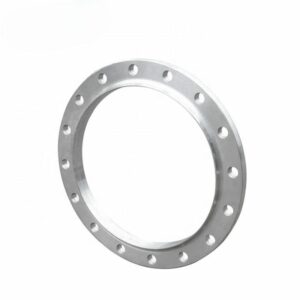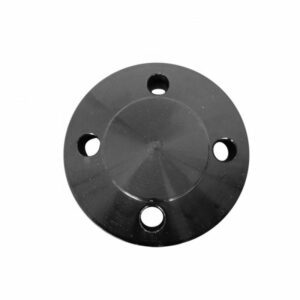PRODUCT FEATURES
Blind Flange 4 Inch Manufacturer to Rocket Your Business
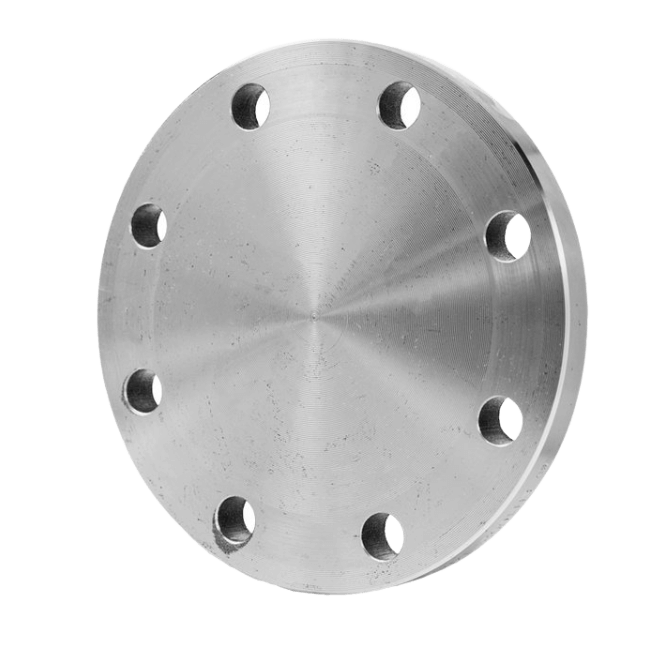
PRODUCTS
Proud To Offer A Wide Variety Of Flanges
If you are looking for something specific that isn’t listed on our website yet, just contact us today!

ABOUT US
Who Is Oflange.com
oflange.com have seen that today there are also many flange companies in China & internationally. However, their solutions were still stuck a few years ago.
In fact, we have been upgraded in recent years, and oflange.com hope our smart and flexible solutions can inject fresh blood into this market.
PARTNER
Who Trust Us





BUYER’S GUIDE
Blind Flange 4 Inch
A blind flange is a solid flange as shown below. The purpose of these is to block off a section of pipe or a nozzle on a vessel that is not used. (A nozzle is typically a pipe coming out of a vessel and is usually flanged so it can be connected to valves or piping).
Many times a nozzle will be blanked off with a blind flange for pressure tests in a plant, or simply because the customer does not need all the nozzles that were supplied on the tank.
A blind flange 4 inch is a type of flange that is used in piping and tubing systems. It is a disk-shaped metal plate that has a hole in the center so that it can be attached to other components of the system.
Table of contents
1. Blind Flange 4 Inch Brief Explanation
A blind flange is a type of flange that is machined and used to close the end of a pipe. It is a solid disc with a hole in the center that is used to connect two pipes or fittings. The blind flange is bolted to the bolt holes of pipe or fitting, which then allows the other pipe or fitting to be bolted on.
Blind flanges are extremely useful when you don’t want what you’re connecting to be visible or easily accessible. This is most common in the case of pipes that go underground and won’t come back up for a while, but it can also be used where you want something hidden (like in a wall behind a cabinet or flooring).
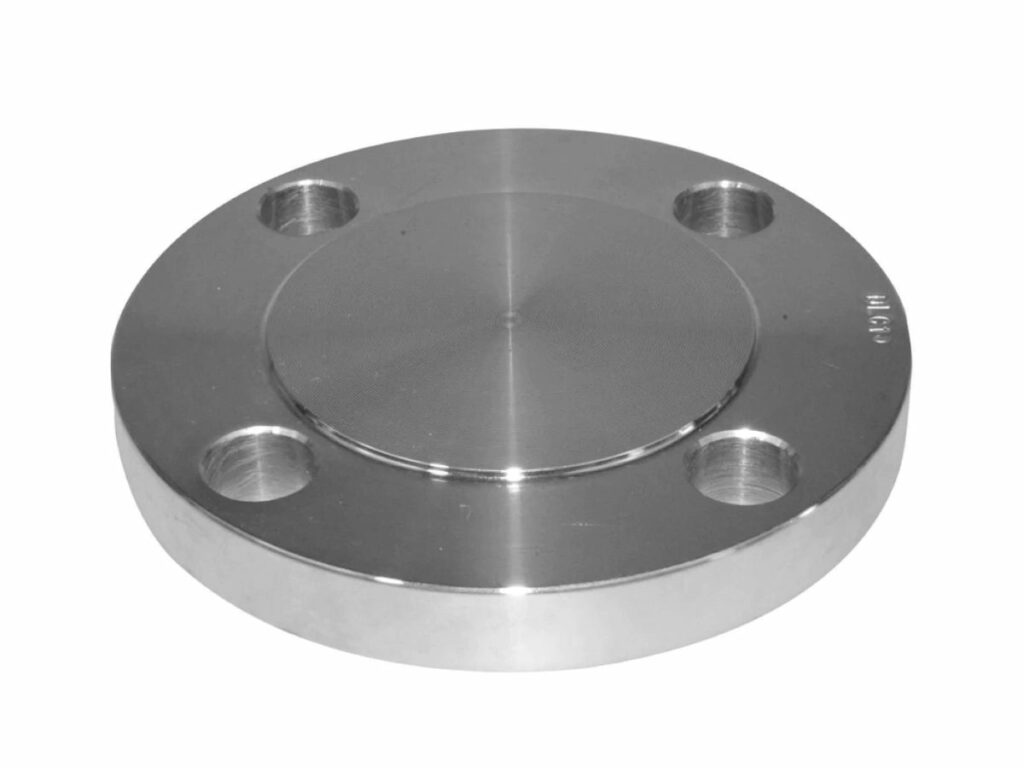
2. Different Class of Blind Flange 4 Inch
There are 3 different classes of blind flanges: A, B, and C. They are based on the blind flange’s ability to have a pressure rating.
| Class | Pressure Rating |
|---|---|
| Class A | They have a pressure rating of up to 2500 PSI |
| Class B | They can handle up to 6000 PSI of pressure |
| Class C | Have a pressure rating of up to 10,000 PSI |
| Other Class | There are other classes of the blind flange such as blind flange class 150 and blind flange class 300. These blind flanges are not commonly used and are not found in the market. |
Class A
Class A blind flanges are the most common type. They have a pressure rating of up to 2500 PSI. It’s easy to identify them because they have an inherent pressure rating. A blind flange has a raised lug that is parallel to the bolt circle.
Class B
Class B blind flanges are more common than class A blind flanges. They can handle up to 6000 PSI of pressure, and they’re easy to identify because they have a raised lug that is perpendicular to the bolt circle. Class B blind flanges are not rated for pressure.
Class C
Class C blind flanges have a pressure rating of up to 10,000 PSI and can also be identified by having a blind hole in their center. This blind hole allows it to be securely attached to a thru-bolted blind head and then used on a pressure vessel.
Other Class
There are other classes of the blind flange such as blind flange class 150 and blind flange class 300. These blind flanges are not commonly used and are not found in the market.
Although blind flanges can be used with other blind bolts, they’re often used with blind studs because they also have blind holes on them. One end of the blind stud has a bolt circle; the other end has a hex or square head that allows it to be tightened down.
3. The Difference Between Blind Flange 4 Inch and Other Flange Types
Blind flange 4 inch has a thickness that is equal to the face of flange thickness. It has a matching face type and a similar bolting pattern. Blind flange 4 inch can also be used to seal a nozzle opening on a pressure vessel.
Here are some of the significant differences which blind flange 4 inch has than other flange types:
Blind Flange 4 Inch Is Thicker Than a Standard 90° Flange
A blind flange 4 inch is thicker than a standard 90° flange. This means that it can handle more pressure and is less likely to leak. Blind flange 4 inch is also made from a higher-quality material, which makes it more durable for piping system.
Blind Flange 4 Inch Usually Has Less Number of Bolts
A blind flange 4 inch has a similar bolting pattern as other flanges, but it usually has less number of bolts. This makes it easier to install and remove for different pipe size.
Blind Flange 4 Inch Does Not Have a Bored Hub
A blind flange 4 inch does not have a bored hub. This means that the hub cannot be used to connect two pipes or fittings.
If you want to know more about blind flange 4 inch, we recommend contacting us at Oflange. Our blind flange 4 inch has been designed in a way for you to be able to get the precise value of blind flange 4 inch among other blind flanges.
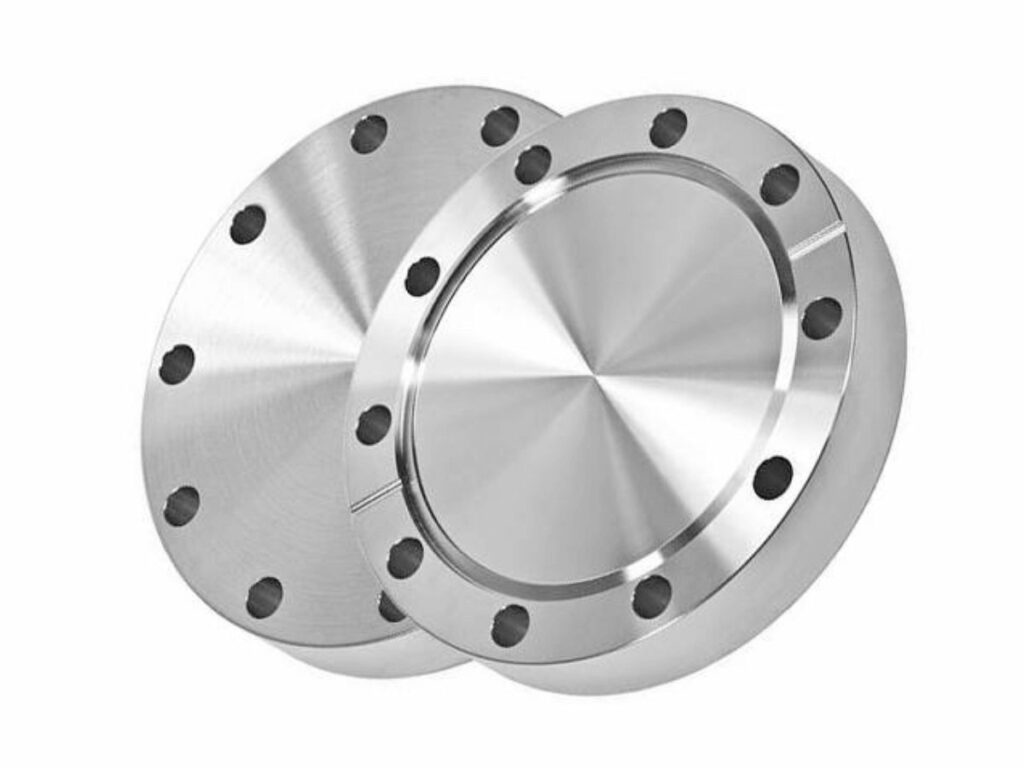
4. Blind Flange 4 Inch Materials
The blind flange 4 inch is made up of a variety of materials. These materials include steel, aluminum, and brass. Let’s talk about each material below.
Steel
Steel is the material of blind flange 4 inch. Steel is strong, durable, and affordable. There are different grades of steel. The lower the number, the alloy used will be less carbon. For example, grade 308 blind flange has an alloy chiefly made up of manganese and nickel.
Aluminum
Aluminum is another blind flange 4 inch material. Aluminum blind flanges cost less than steel blind flanges. In addition, aluminum blind flanges weigh as much as 30% as steel blind flanges do. However, an aluminum blind flange is not nearly as strong and durable as a steel blind flange.
Brass
There are blind flange 4 inch blinds that are made up of brass. Brass blind flanges can also be found in blind flange thick section designs to ensure strength and durability.

5. Blind Flange 4 Inch Dimensions
A blind flange 4 inch is typically used in conjunction with other flanges to form a closure. It is bolted to the mating flanges, which creates a seal. The blind flange has a thickness of 3/8 inch and a diameter of 4 inches. It has a hub diameter of 2 7/8 inches and a bore diameter of 2 1/2 inches.
These are the blind flange dimensions that are specified by the ASME B16.5 standards. Other dimensions may be available upon request. You may also refer for other measurements of blind flange 4 inch below:
- 2 inch blind flange
- 3 inch blind flange
- 4 inch blind flange
- 5 inch blind flange
- 6 inch blind flange
- 14 inch blind flange
- 24 inch blind flange
6. Blind Flange 4 Inch Manufacturing Process
Blind flanges are often used to seal the nozzle opening on a pressure vessel. Because they are bolted in place, blind flanges provide easy access to the interior of a vessel or pipe.
The manufacturing process includes:
Step #1 Face Work
The first step in manufacturing a blind flange is to perform face work. This involves machining the flange’s face to the correct dimensions and finish. The face should be smooth and flat so that it will mate correctly with the mating surface on the pipe or vessel.
Step #2 Counter Bore
The blind flange has a blind bore that is created using an internal grinding process. To create this blind bore, the blind flange must pass through a counter-boring machine. This counterbores the blind hole to make mating with the pipe possible.
Step #3 Main Hole Drilling
The blind hole is drilled using a precision drilling process. It must be a blind hole because it will not have a central opening. To make the blind, the blind flange moves through a main hole drilling machine while internally rotated so that no point on the blind hole is directly above another point on the blind bore.
Step #4 Inspecting/Testing
Blind flanges are inspected for imperfections, including cracks, corrosion pits, and other impurities. Blind flanges are also tested for tight seal to ensure they meet specifications.
Step #5 Distribution
The blind flange is distributed to customers who will use it for their piping and pipe fitting applications.
7. The Benefits of Using Blind Flange 4 Inch
There are many benefits of using a blind flange 4 inch. Some of the most notable benefits include:
Easy Access
Because it is bolted, the blind flange provides easy access to the interior of a vessel or pipe, unlike a cap that is welded.
Flexibility
Blind flanges can also be used to seal a nozzle opening on a pressure vessel. It is bolted, the blind flange provides easy access to the interior of a vessel or pipe. Welded caps are not applicable for this case because they do not have gaskets.
Cost-Effective
Blind Flanges are known to be cost-effective since it is affordable, available in many designs and sizes, can serve their purpose well, are simple to use, and can be easily installed.
Versatility
Blind flanges have the face thickness of a flange, a matching face type, and a similar bolting pattern. It can also be used to seal a nozzle opening on a pressure vessel. Because it is bolted, the blind flange provides easy access to the interior of a vessel or pipe.
Fits Any Application
Blind flanges are available for use with different types of materials, pressures, temperatures, and pressures.
Blind Flange 4 Inch is very beneficial to have in-home/industry because of its many benefits. It can be used for several different purposes, depending on the blind flange that you choose to buy. If you are looking for blind flanges then it is possible to find them here on our website at Oflange.

8. Blind Flange 4 Inch Average Cost
The blind flange 4 inch average cost can vary, depending on the brand and the size of the blind flange. The blind flange is a type of flange that does not have a hub or a boring center. It is bolted, which makes it easy to access the interior of a vessel or pipe.
The blind flange 4 inch average cost can range from $50 to $200, depending on the brand and size of the blind flange.
If you want an exact blind flange 4 inch cost, contact us at Oflange. We will be glad to provide blind flange 4 inch price quotes.

9. Maintenance Tips for Blind Flange 4 Inch
When blind flanges are bolted down, the blind flange and blind nut need to be checked regularly for tightness. This is necessary because blind nuts can begin to loosen during normal operation.
Below are some blind flange maintenance tips:
#1 Inspect Blind Flange Bolts Before Each Use
When blind flanges are bolted in place, the blind nuts at the other end must be checked for tightness before each use. If blind flange bolts are too loose or over tightened, this can lead to fatigue and eventual failure of the bolt threads.
#2 Lubricate the Blind Flange Bolts and Washers Before Each Use
Before blind flange bolts are tightened, a light machine oil should be applied to blind flange bolt threads and blind washer surfaces. This lubrication step prevents the blind nut from becoming stuck or stripped.
#3 Keep Blind Flanges Clean and Free of Debris
Blind flanges and blind nuts should be kept clean and free of debris to prevent the blind nut from becoming stuck or stripped when blind bolts are tightened.
#4 Wipe Blind Flanges Down After Use To Remove Any Residue
After blind flanges are removed, any residue can be wiped off to prevent blind bolt threads from becoming contaminated.
#5 Use Shims When Installing Blind Flanges
Blind flange bolts should always be tightened with blind nut washers and blind nuts inserted correctly using the blind nut insertion tools provided by many suppliers.
To know more about the flange types, check out this video.
10. Final Words
A blind flange is a type of pipe fitting that is used to block off a section of pipe. This flange has no opening, so it can be used to seal off a section of pipe. If you need to block off a section of pipe, then you need a blind flange!
Purchase a Blind Flange 4 inch today on our website at Oflange! We offer a wide variety of products. Our mission statement is to manufacture high-quality, durable, and affordable products that will serve the needs of our customers.
